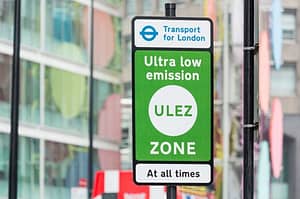The maverick MEP reveals how millions of pounds are used to buy loyalty from Oxfam, Action Aid and other NGOs
When preparing the document that became the European Constitution, and then the Lisbon Treaty, the EU authorities made a great show of ‘consulting the people’. In 2003, 200 organisations, representing ‘civil society’, were invited to submit their suggestions on what the draft should contain. Interested in how these 200 bodies had been selected, I put down a written question asking which of them received grants from the EU. After some toing and froing, the answer eventually came back: all of them.
You see how the system works? The EU sets up and funds an interest group. That group duly demands that the EU seize more powers. The EU then announces that, in response to popular demand, it is extending its jurisdiction.
Virtually every field of activity has some approved, EU-sponsored pressure group to campaign for deeper integration: the European Union of Journalists, the European Women’s Lobby, the European Cyclists’ Federation. These are not independent associations which just happen to be in receipt of EU funds. They are, in most cases, creatures of the European Commission, wholly dependent on Brussels for their existence.
Nor is the racket limited to pan-European bodies headquartered in Brussels. The EU has been active in subsidising established NGOs within the nation-states, too. It starts harmlessly enough, with one-off grants for specific projects. After a while, the NGO realises that it is worth investing in a ‘Europe officer’ whose job, in effect, is to secure bigger grants. As the subventions become permanent, more ‘Europe officers’ are hired. Soon, the handouts are taken for granted and factored into the organisation’s budget. Once this stage is reached, the EU is in a position to call in favours.
“In the previous year, Action Aid, the NSPCC, One World Action and Oxfam had among them been given more than €43m”
One example will serve to illustrate what I’m talking about. When he introduced the Bill to ratify the Lisbon Treaty in 2007, the then Foreign Secretary, David Miliband, made a great song and dance about the fact that it wasn’t just Labour Europhiles who backed the text. A whole range of NGOs, he told the House of Commons, had also come out in favour: ‘The NSPCC has pledged its support, as have One World Action, Action Aid and Oxfam,’ he said, looking pleased with himself. ‘Environmental organisations support the treaty provisions on sustainable development and even the commission of bishops supports the treaty. This is a coalition, not of ideology, but integrity’.
Integrity? A few moments on the Internet revealed that every organisation he had cited was in receipt of EU subventions. Most of them, it turned out, had also received grants from the British government. Hardly surprising, then, that they should dutifully endorse a treaty supported by their paymasters.
What was surprising was the extent of their financial dependency. When Mr Miliband sat down, I fired off a written question asking the European Commission how much money it had paid these organisations. It turned out that, in the previous year, Action Aid, the NSPCC, One World Action and Oxfam had among them been given €43,051,542.95.
Just think about that sum for a moment. Can organisations in receipt of such colossal subsidies legitimately call themselves ‘non-governmental’? Can they claim to be independent? Can they even describe themselves as charities – at least in the sense that we commonly understand the word?
Why should any of us want to give money to a body that is already forcibly expropriating us through the tax system, and then using part of the revenue to lobby the government?
The other body which Mr Miliband cited, the ‘commission of bishops’, was a little harder to identify, but patient Googling revealed that its full name was the ‘Commission of Bishops’ Conferences of the European Community’. Far from being an episcopal body that just happened to back closer union, it was a Brussels-based outfit whose purpose was ‘to promote reflection, based on the [Roman Catholic] Church’s social teaching, on the challenges facing a united Europe’. In other words, while seeking to give the impression of broad support for a new transfer of powers to Brussels, the British Foreign Secretary was reduced to citing a body whose sole purpose is to interact with EU institutions, and which would be out of business if the EU disappeared. The French call the phenomenon déformation professionelle: the tendency, perhaps subliminal, to form opinions according to the dictates of your professional self-interest.
These various client groups can even be dragged into arguments between different EU institutions. When, for example, the European Commission sought new Continent-wide rules on pesticides in 2007, it set up a front organisation called ‘Pesticide Watch’ – an amalgam of various EU-funded bodies – to push it in the direction it wanted. MEPs were then duly bombarded by emails from this campaign – presented, naturally, as missives from ordinary citizens.
In much the same way, the Commission pays Friends of the Earth to urge it to take more powers in the field of climate change. It pays WWF to tell it to assume more control over environmental matters. It pays the European Trade Union Congress to demand more Brussels employment laws.
To summarise, the EU firehoses cash at its dependent NGOs, these organisations tell it what it wants to hear, and it then turns around and claims to have listened to The People. And here’s the clever bit: millions are thereby drawn into the system, their livelihoods becoming dependent on the European project.
Extracted from A Doomed Marriage: Britain and Europe, published by Notting Hill Editions priced £10. Available here
More like this
Dan Hannan: Switzerland and Norway prove we can leave the EU






Leave a Comment